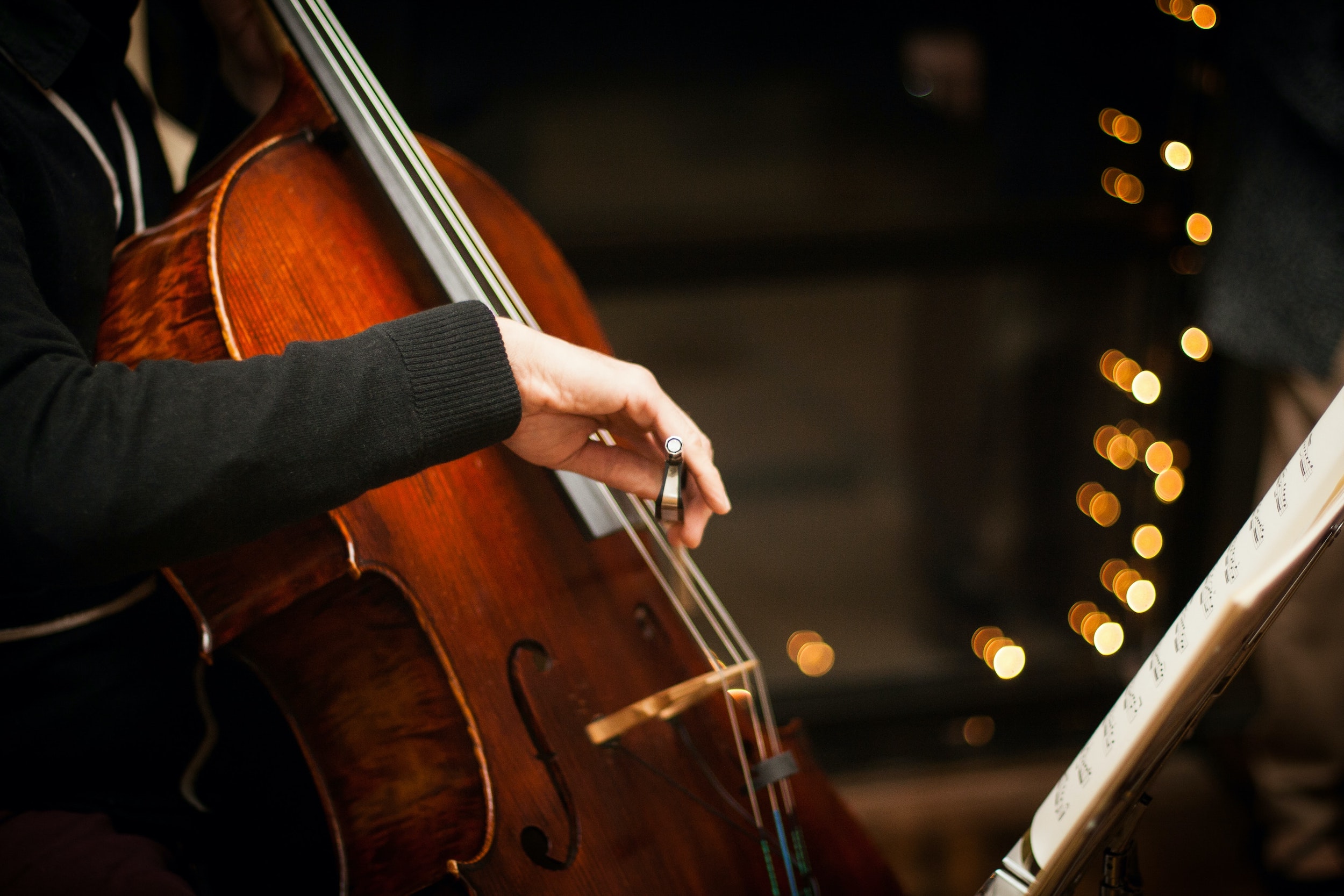If you’ve landed here, then congratulations on your engagement are likely in order! No matter where you are in your planning journey, we’re excited to help you learn about live music for weddings. Maybe you’ve booked your venue and shored up major details, or maybe you’re simply in the exploratory phase. You’re right where you need to be in order to understand what to expect for your wedding music costs, and take the next step toward booking your wedding music on a budget.
Some engaged couples know exactly what type of music they’d like to have at their wedding from the start. They’ve envisioned the band, the procession, the dancing… and now it’s time to just sign the dotted line. For most others, getting to know their options can take some time — let alone deciding! Whichever camp you may fall in, we’ll help you figure out how to hire wedding musicians, what questions to ask, and when to have the box checked.
1. Determine your wedding music budget.
First, you’ll need to take a look at how much you’re able to spend on music at your wedding. Some couples have this form of wedding entertainment as a focal point, fueling everything from the ceremony to the dance floor. While others may choose to skip the cost of live musicians and play tracks. We get it — wedding music costs can be prohibitive, so luckily there are varying degrees of live versus recorded entertainment that form a sliding scale to fit your needs.
The following price ranges are general averages, and will vary depending on your location, wedding date, time played, and size of the ensemble.
- Full live wedding band or ensemble: we recommend allotting $2,000-$4,000.
- For a smaller ensemble, like an instrumental duo or string quartet, costs tend to fall around $200-$500.
- Prefer a solo instrumentalist? $200-300 should often do the trick.
- And for wedding DJ costs, those vary quite a bit depending on equipment needed (e.g., sound, lights), as well. Count on a range from $500 to $2,500.
We offer competitive pricing, and aim to make it easy for you. Wondering about your wedding music cost? We’ll walk you through it!
2. Narrow what type of wedding music you’d like.
Not sure where to start? Give yourself an idea of your wedding music options and taste with our Guide to Selecting Wedding Music. If the cost of wedding music alone doesn’t limit your choices, then picture what vibes and sounds you’d like to have throughout the day. A subtle, classic group for the ceremony? A jazzy feel for the cocktail hour? An energetic ensemble for the reception? Traditional or offbeat, your options and combos are endless.
3. Play around with cost-saving options, as needed.
There are a few different “levers” you can pull in order to adjust your wedding music cost.
- Performance time — Generally, the longer a group plays, the higher the price. However, the cost difference from a shorter time frame to a longer one may decrease as the time goes up, because the performers will already be there and set up. For example, we do not charge more to play both the ceremony and cocktails within the same time frame. Be sure to ask for quotes for different time ranges to give yourself more options to customize the contract.
- Event segments — Music will be playing in some form or another throughout the event: the ceremony, the cocktail hour, dinner, dancing. Dying to have a certain ensemble play, but limited by their cost? You don’t need them for the entire reception. Have them play for just the dance-heavy time frame, or scoot them earlier to perform during just the cocktail hour.
- Ensemble size — For some couples, it may not make a difference whether they have a string quartet or a string trio. Or perhaps you can omit a vocalist and auxiliary percussionist. See what options you have to downsize, if that’s an option for cost savings.
- Ensemble type — The bigger and more specialized a musical ensemble, the more expensive it gets. This is why larger wedding bands cost more than, say, a smaller jazz trio or folk duet. If you’re flexible on the sound and simply want certain songs, you’ll allow yourself more wiggle room on how much you spend.
- Live vs Recorded — Last, you can always opt for a set playlist during any part of the day to supplement and offset the cost of live music during others.
Once you’re ready to book your wedding music on a budget, we can help guide you through that, too! Check out How & When to Book Wedding Music, or reach out to us directly to help answer any questions you may have on next steps.


